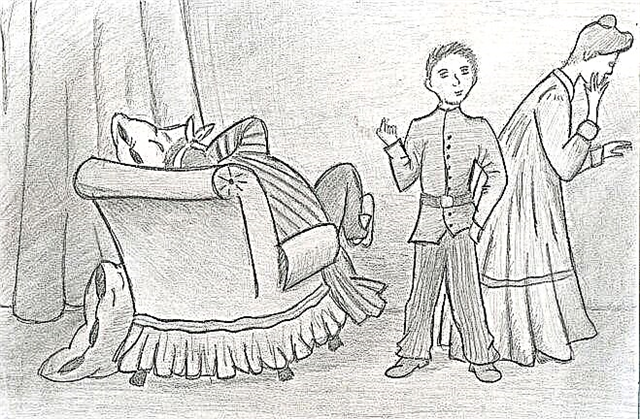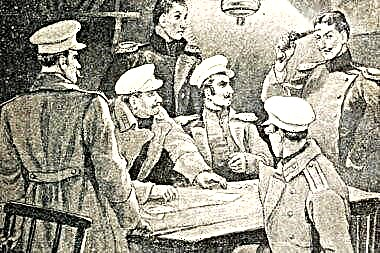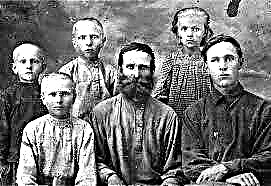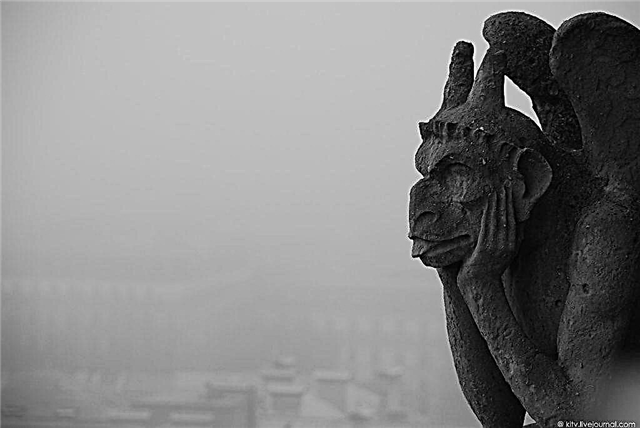Suddenly, at the age of forty-nine, Mario Calyado dies of a heart attack. After him there remains a large family - Carmen's wife and five children. Accepting condolences and then, sitting awake at her husband's body, Carmen silently leads an endless conversation with him. From this internal monologue, the story of Mario and Carmen's acquaintance and relationships gradually emerges, their - so different - characters and outlooks on life - the whole story of the family, the story of two people who lived side by side for many years, but always were strangers to each other.
Carmen grew up in a wealthy bourgeois family, where there was decent prosperity and a few servants. My father worked in the illustration department of a large conservative newspaper, and his mother led the house. Mario and Carmen meet right after the war - her memory is still very fresh. Mario, on the Republican side, lost two brothers, and the Carmen family is openly pro-Francoist. The political views of future relatives worry Carmen's parents, but they still decide to marry her daughter off to Mario, relying on his abilities, which, in their opinion, should provide the young man with a brilliant university future.
However, as it turns out, Mario is not going to make a career at all. He is quite content with the modest position of a teacher and the opportunity to publish the El Correo newspaper, his beloved brainchild. In his free time, he argues hoarsely with friends who, like Mario, dream of rebuilding the world on a more equitable basis, and writes the philosophical novel Castle in the Sand. This book is completely incomprehensible to Carmen and her father, whose opinion the woman considers unquestionable, moreover, such books do not bring money to the family. Mario is alien to any conventions: to his wife's indignation, he rides a bicycle to work and does not suffer at all, unlike Carmen, due to the lack of a car; makes acquaintance with anybody and completely does not recognize the right people, is surprisingly inattentive to his clothes, does not take gifts from rich parents of mediocre students before the exam, flatly refuses to become a deputy of ayuntiento, the local government, so as not to feel obligated to maintain the official line.
Carmen, by contrast, is a slave of conventions. The subject of her most serious experiences is the absence of silverware in the house; therefore, when she receives guests, she serves only cold snacks so as not to discover in front of people what she perceives as her shame. She appreciates in people only the outward - the manner of behavior, the correctly selected tie, the ability to say pleasant things in time or to keep silent when it is beneficial. Admiration is caused only by those who managed to make a career - no matter what way. Mario does not meet these requirements and causes only a condescending, mocking attitude of his wife. She does not understand his openness and directness, his honesty and inability to catch - all this in the system of life values of Carmen refers to great shortcomings. Sitting at the grave of her husband, the woman recalls how many times in his life he missed the opportunity to advance in the service, as he was sloppy with the right people; reproaches him for refusing to sign a fake protocol and thereby making enemies, was left without an apartment. She mentally reproaches her husband for not wanting to share her way of thinking, neglecting charity classes, believing that the poor should not be bombarded with chocolates, but given what is rightfully theirs; the El Correo newspaper, which Mario produced and which Carmen could not stand, always wrote about this. Neither the newspapers, nor the books of Mario, nor his friends were ever close to her. It is not surprising that she does not understand the causes of her husband’s depression and, contrary to the insistence of the doctor, treats his condition as a whim. Carmen does not know what to answer her husband when he constantly repeats: "I am alone." Mentally, she reproaches him for this and, of course, feels offended, seeing Mario reproaching himself for his illness.
In his endless monologue at the sepulcher, Carmen argues all the time with her husband, reproaches him, expresses old secret insults, which she probably never spoke to him during her lifetime. They come from very different families and from different social circles, and lived next years did not smooth out these differences. For Carmen, her father, whom she considers a great writer, remains the ideal, although in reality he was a journalist of a medium-sized and very conservative kind. Mother, endlessly uttering platitudes, a woman perceives as a storehouse of worldly wisdom. But she treats her husband’s relatives and friends with open disdain: if her own family embodies the moral principles for her, the traditional, old Spain, then close Mario sympathized with the Republicans, which Carmen is ashamed of. She does not tolerate either his sister Charo or daughter-in-law Enkarn, the widow of one of the dead brothers Mario. She does not understand - and therefore causes contempt - the selflessness with which Enkarna looked after Mario’s paralyzed and lost in childhood: Carmen sees this only as ostentatious and does not suspect that the woman is sincerely mourning Mario, just as sincerely. In the same way, Carmen and the external calmness of Mario at the funeral of his mother are incomprehensible; she does not feel great grief over his behavior, since she appreciates only external manifestations.
Very different, Carmen and Mario have a different attitude to raising children: what seems essential to a wife does not bother her husband at all, and vice versa. So, Mario takes to heart that his daughter Menchu is a poor student, and Carmen, who sees the woman’s only destiny in marriage, does not bother her at all, since she considers the teaching a meaningless exercise. She does not approve of the excessive enthusiasm of the eldest son, named after his father, to study. Mario Jr. is as much a mystery to her as Mario Sr. Carmen does not understand why the son is standing at his father’s tomb in a blue sweater, not bothering to change into a black suit, why he doesn’t care at what level the funeral will be held. However, she already firmly decided that now that she remains the mistress of the house, those who remain to live with her under the same roof will have to share her views - the question is not to ask the personality in the child that so disturbed her husband, before it does not even arise.
In such recollections and reflections Carmen spends the night, night at the grave of her husband. Her whole life passes before her eyes - the life of very different and alien people, who have not become close for many years, lived side by side. In the morning comes Mario; he is trying to distract his mother from hard thoughts, but she does not understand him in the same way as she did not understand Mario Sr. And only when he asked his mother if he was sleeping, the young man replied that he could not fall asleep, because he always seemed to be drowning in a mattress, Carmen recalls that this was what her husband said during bouts of depression. And she becomes scared. But voices distract her. - acquaintances gather: they should make the coffin soon. In the last minutes of farewell to her husband, Carmen thinks only about one thing - a black sweater fits her figure too tight and this is not very decent.












